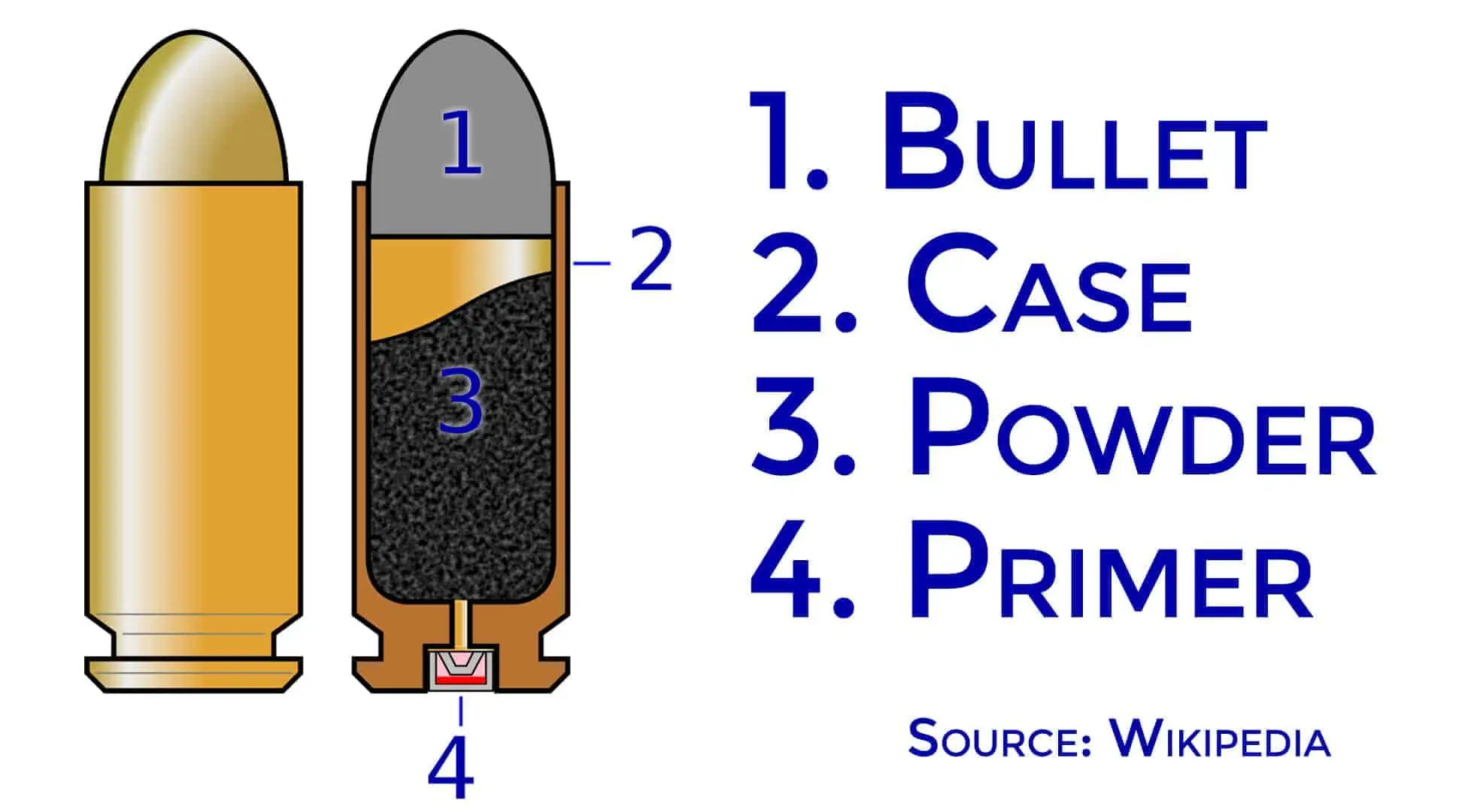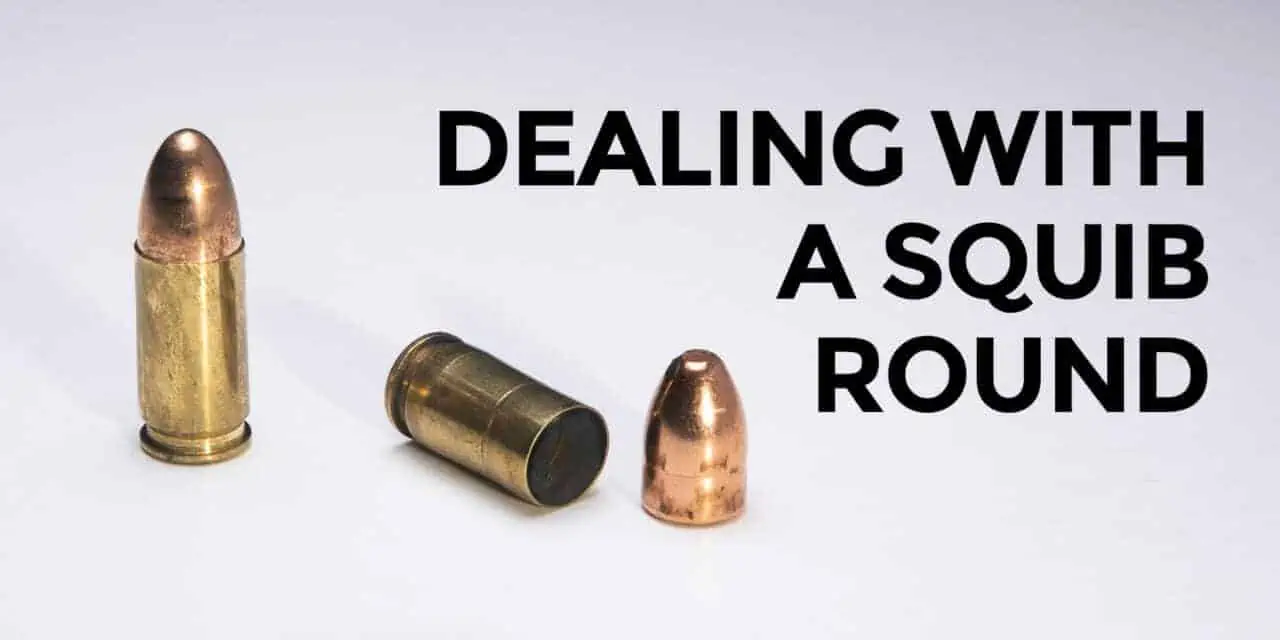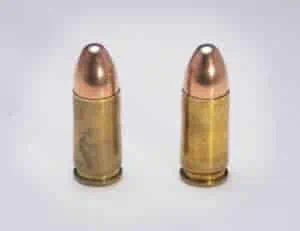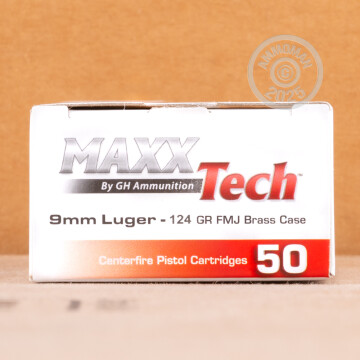The Loudest “POP” You’ll Ever Hear: The Squib Load
The modern ammunition cartridge is a miracle compared to the days when you had to assemble everything inside the gun by pouring powder into the chamber, then adding a bullet of some kind and setting it off with a spark. Today’s cartridges are reliable, well made and accurate, but a few bad apples can fall through even the most rigorous of quality control processes. Improper quality control by either reloaders at home or at the factory can result in a lack of powder inside the cartridge. This can result in squib load and some very bad consequences for you and everyone around you.
What is a Squib Load?
A squib load occurs when you pull firearm’s trigger, the bullet’s primer ignites the cartridge but there isn’t enough powder or charge to push the bullet out of the barrel with the typical amount of force.
A squib load can lead to a dangerous situation. For example, it’s possible the bullet never leaves your barrel. In this case, if you fire a follow-up round, the second bullet would collide with your squib load bullet. That can lead to a small explosion in the barrel.
 A modern round of ammunition consists of four parts: There’s the bullet, which comes flying out the end of the barrel and (in theory) hits the target. There’s the powder, which burns rapidly and sends the bullet on its way. The case (usually brass, steel or aluminum) holds everything together. At the end, there is the primer, which is stuck by the firing pin and sets everything in motion.
A modern round of ammunition consists of four parts: There’s the bullet, which comes flying out the end of the barrel and (in theory) hits the target. There’s the powder, which burns rapidly and sends the bullet on its way. The case (usually brass, steel or aluminum) holds everything together. At the end, there is the primer, which is stuck by the firing pin and sets everything in motion.
What Causes A Squib Load?
A squib load is caused by not having enough powder inside of the casing. The firing pin hits the primer, the primer ignites and either there is no powder inside of the case, or there is only a small amount that is not sufficient to send the bullet downrange fast enough to even approach the correct muzzle velocity. Having this happen to you is a bad (very bad) thing because there is no guarantee the bullet actually left the barrel of your gun. If there is a bullet stuck in your barrel and you shoot another round, the results can be catastrophic. At best, you’re going to ruin your gun. At worst, people can be injured and die.
Firing a gun produces a tremendous amount of pressure. For instance, a 9mm round can create up to 35,000 p.s.i. when fired. As a comparison, the pressure at the bottom of the Marianas Trench, the deepest part of Earth’s ocean, is only 16,000 p.s.i. The purpose of all that force is to send the bullet out the barrel of the gun. If that doesn’t happen because the barrel is blocked by a bullet from a squib load, all that pressure has to go somewhere, with potentially catastrophic results.
Warning: Contents Under Pressure
Some of the results of firing a round after a squib load can include bulging the barrel due to the pressure of firing a round. That ruins the barrel, and can bring your semi-automatic pistol to a screeching halt as the barrel no longer fits in the slide and can in fact explode in your hands. With a revolver, unless you hear the “pop!” of a squib occurring, (more on that later), you can, in theory, keep shooting. Sometimes the results only ruin your gun. Sometimes they ruin lives.
Brandon Lee was the son of renowned martial artist and movie star Bruce Lee. Brandon’s first (and last) big break in the movies came when he played the lead role in the 1994 film “The Crow.” Like most modern action movies, the movie made extensive use of prop guns and blank ammunition. However, the armorers on the set created their “blanks” by removing the powder from the cartridges and leaving the bullets and primers intact. This resulted in a squib round, which was then later shot from the gun with enough force to end his life.
When I say squib loads are a big problem, I’m not kidding. Fortunately, they are fairly rare. They can happen with factory-produced ammo, but they are much more common with reloaded ammunition. Diagnosing a squib load when it happens is the key to avoiding a catastrophic result. The diagnosis isn’t hard, but it does require you to pay attention as you are shooting.
Signs You Have A Squib Load
The most-obvious indication you have a squib load is the distinctive “pop!” of the primer igniting without a significant amount of powder igniting as well. That sound (and the fact that your gun didn’t cycle if it is a semi-automatic) is your clue to stop shooting. This can mean different things, depending on where you’re doing your shooting.
If you’re at the range, wait until no one is downrange. If you have a squib rod or range rod, insert it in the barrel, keeping the Four Rules of gun safety in place while you do so. The rod might be blocked by something inside the barrel and doesn’t show up in the chamber, you have a bullet stuck in the barrel and need to get it out before going further. If the barrel is clear, it’s probably a good idea to field-strip your gun and inspect everything to make sure everything is okay before reassembling your pistol and continuing your range session.
Welcome To Your Nightmare
If you’re at a practical shooting match, stop shooting immediately if you hear the “pop” and wait for the range officer / safety officer to give you instructions on how to proceed. Chances are, he or she will tell you to unload your gun, show clear and holster / make safe. You’ll probably then need to the designated safe area at your range and clear the squib under the guidance of a safety officer or range officer.
If you’re in the middle of a gunfight, well, things just got really bad, really quickly. Your gun is now out of the action and your life is in even more danger than it was before. I am not the biggest fan of backup guns for the armed citizen, but this is one of those rare examples where they would come in very, very handy. It’s also another argument against using hand-loaded ammunition for self-defense, so choose your ammo carefully.
As we can see, a squib load is a potentially catastrophic situation. However, with a little foreknowledge and a basic understanding of what’s happening when it occurs, it doesn’t have to end a day at the range, and having a plan in-place for when your gun goes down for any reason is also a good idea. The important thing to remember is that with modern factory ammunition, squib loads are a rather rare occurrence. You may never have one happen to you, but now you’ll be ready if it happens to you.




Had a 9mm squib once. Name brand cartridge fresh out of a new, previously unopened box. Pull trigger – go thud. Bullet lodged just into the barrel. Had a good deal of unspent powder, including a fair sized clump, fall out when I examined my gun. Best I can figure was that somehow, during the assembly process, a drop of some liquid made it into the case. That made some of the powder clump together while also making the clump inert. Some of the powder did ignite, but obviously not much. When I got home I cut a 5/16″ wood dowel and used it to tap the bullet out. ( One time I also had a case rupture on a .22 Mag round in a semi-auto pistol. Now THAT explosion was scary. Another time I had a 1950’s vintage .22LR semi-auto rifle go full auto on me, while the range officer was RIGHT behind me! Just call be Lucky! 😉 )
I also had a 9mm squib once. My daughter. was shooting my CZ P01 and seemed to keep missing a close target. I took over, fired one shoot, heard a weird noise and the the slide locked half open, with the barrel bulged. Cause turned out to be the ammo had previously gotten went during shipment. Not an experience I ever care to repeat.
There is NO ‘spark’ associated with igniting gunpowder. Sparks occur via electricity. The correct term is ‘flame’.
And you accused me of being, “…the expert in ‘petty BS’…”? Even if THAT was true, unlike you, EVERYTHING I post is ACCURATE and FACTUAL!! Evidently your sanctimoniously self-righteous ago got in the way of you understanding what the author was attempting to convey! The author was referencing…wait for it…here it comes…MUZZLE-LOADERS!! Muzzle-loaders employed a piece of flint or an exterior percussion cap of which either was capable of giving off a SPARK thereby igniting the power within the confines of the rifle!!
All MEN were created EQUAL…then SOME joined the Marine Corps….